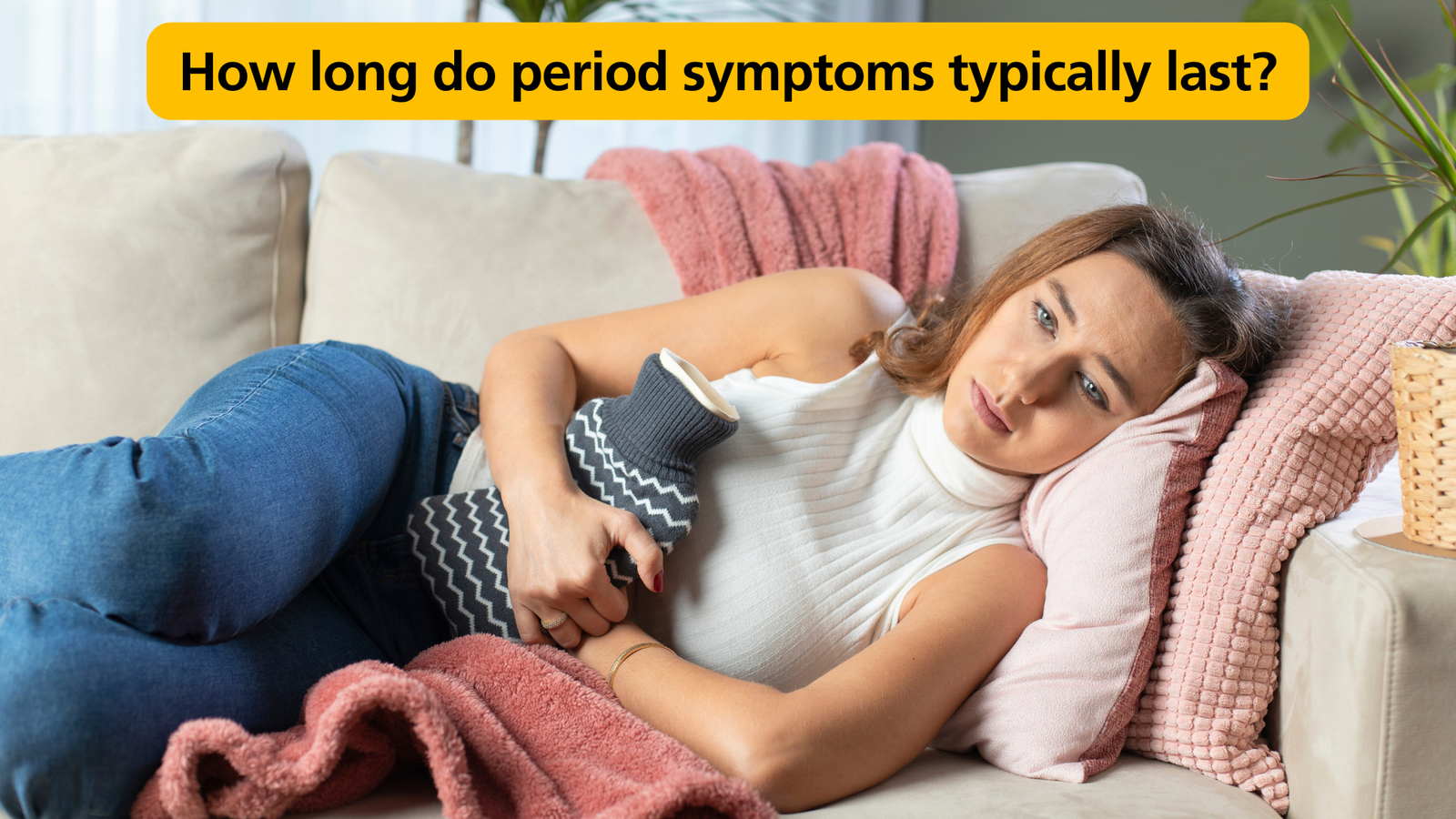Periods, also known as menstruation, are a normal part of a woman’s reproductive cycle. Alongside the bleeding, many women experience a range of symptoms, from cramps to mood swings, that can vary in intensity and duration. Understanding how long these symptoms typically last is essential for managing them effectively and knowing when to seek medical advice. Let’s delve into the details.
Understanding Period Symptoms
Before delving into the duration, let’s grasp what period symptoms entail. These symptoms can encompass physical, emotional, and psychological changes that occur in the lead-up to menstruation and during the menstrual cycle. Common symptoms include abdominal cramps, bloating, breast tenderness, mood swings, fatigue, and headaches. While these symptoms can be bothersome, they are generally manageable with the right strategies.
Duration of Period Symptoms
Variability Factors
The duration and intensity of period symptoms can vary significantly from woman to woman. Several factors contribute to this variability, including hormonal fluctuations, overall health, lifestyle factors, and genetics. Understanding these variables can provide insights into why symptoms may differ among individuals.
Typical Duration
On average, period symptoms typically start a few days before menstruation begins and may last for the first few days of the menstrual cycle. For most women, these symptoms subside as menstruation progresses, usually within the first three to five days. However, it’s essential to note that individual experiences may vary, and some women may experience symptoms for a shorter or longer duration.

Prolonged Symptoms
While most women experience temporary discomfort during their menstrual cycle, prolonged or severe symptoms may indicate underlying health issues. If symptoms persist beyond the usual timeframe or significantly interfere with daily activities, it’s crucial to consult a healthcare provider for further evaluation and management.
Managing Period Symptoms
Effective management strategies can help alleviate discomfort and improve quality of life during menstruation. Here are some tips for managing period symptoms:
Lifestyle Changes
Making lifestyle adjustments can often help reduce the severity and duration of period symptoms. Engaging in regular exercise, maintaining a balanced diet, staying hydrated, managing stress levels, and getting adequate sleep can all contribute to overall well-being during menstruation.
Medications
Over-the-counter pain relievers such as ibuprofen or naproxen sodium can help alleviate cramps and discomfort associated with menstruation. Additionally, hormonal contraceptives, such as birth control pills, may help regulate hormonal fluctuations and reduce the severity of symptoms for some women.
Alternative Therapies
Some women find relief from period symptoms through alternative therapies such as acupuncture, yoga, herbal supplements, or dietary changes. While research on the effectiveness of these approaches varies, many women report positive outcomes with complementary and alternative treatments.
Seeking Medical Advice

While occasional discomfort during menstruation is normal, persistent or severe symptoms warrant medical attention. If you experience prolonged or debilitating period symptoms, it’s essential to consult a healthcare provider. They can evaluate your symptoms, rule out any underlying conditions, and recommend appropriate treatment options.
Conclusion
In conclusion, period symptoms typically last for a few days before and during menstruation, with variations in duration and intensity among individuals. Understanding the factors influencing these symptoms and implementing effective management strategies can help alleviate discomfort and improve quality of life during the menstrual cycle. Remember to seek medical advice if you experience prolonged or severe symptoms to ensure optimal health and well-being.
FAQs
1. Are period symptoms the same for every woman?
Period symptoms can vary widely among women due to factors such as hormonal fluctuations, genetics, and overall health.
2. Can stress affect the duration of period symptoms?
Yes, stress can exacerbate period symptoms and may prolong their duration in some individuals.
3. When should I be concerned about the duration of my period symptoms?
If your symptoms persist beyond the typical timeframe or significantly interfere with your daily life, it’s advisable to consult a healthcare provider for evaluation.
4. Are there any natural remedies for managing period symptoms?
Some women find relief from period symptoms through natural remedies such as herbal supplements, dietary changes, and alternative therapies like acupuncture or yoga.
5. Can birth control help alleviate period symptoms?
Yes, hormonal contraceptives like birth control pills can help regulate hormonal fluctuations and reduce the severity of period symptoms for many women. However, it’s essential to consult a healthcare provider to determine the most suitable option for your individual needs.
